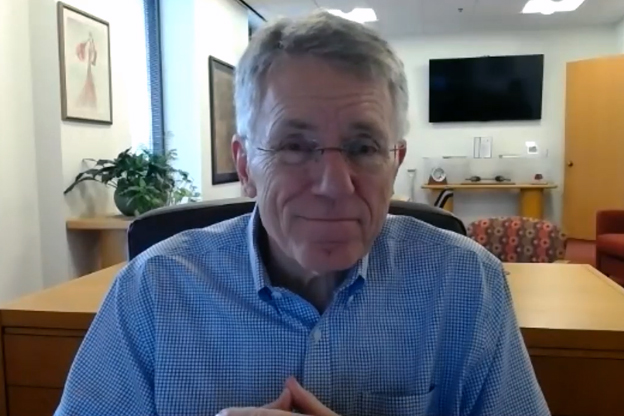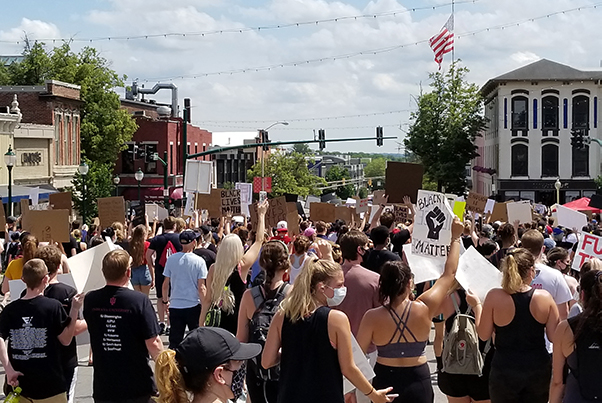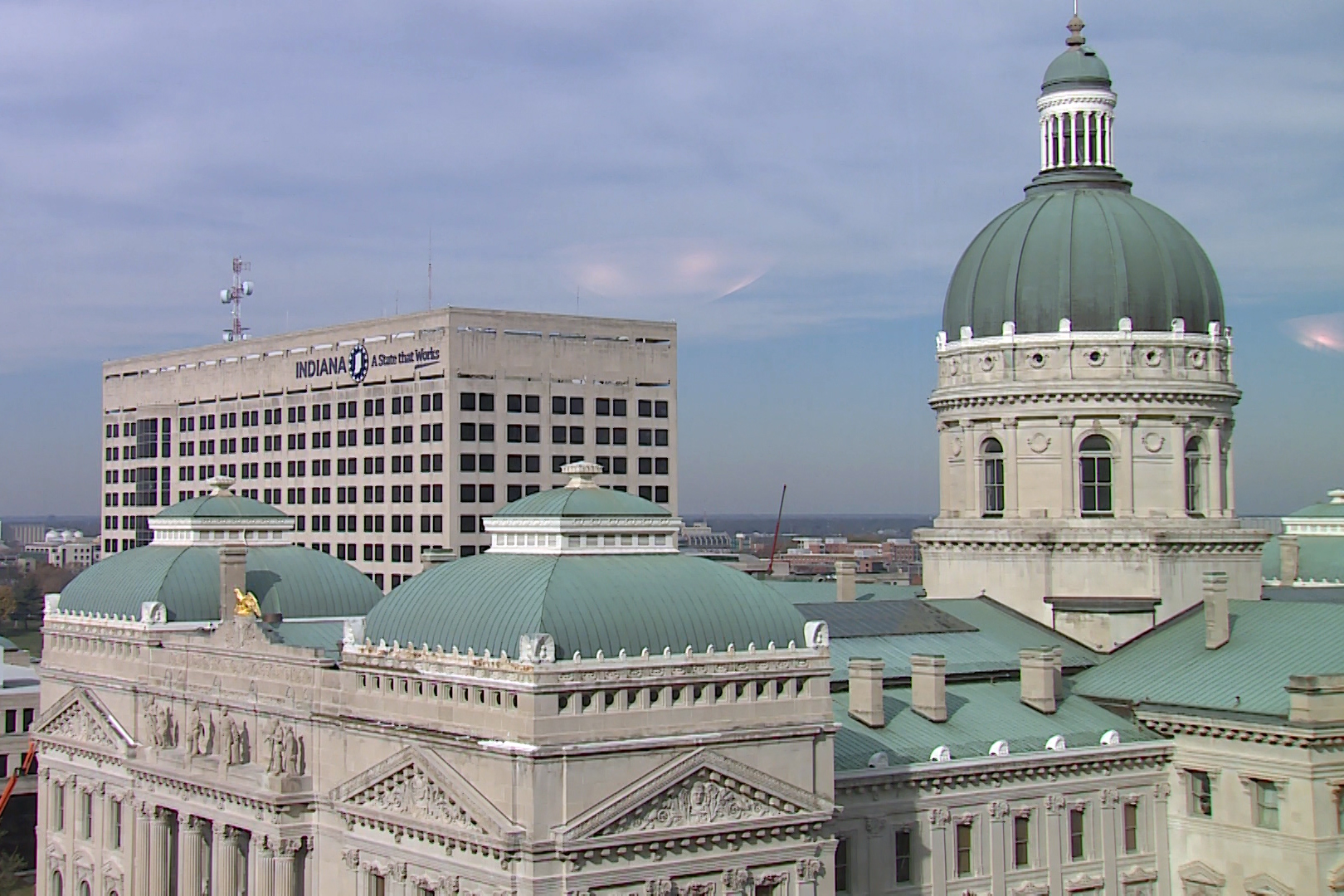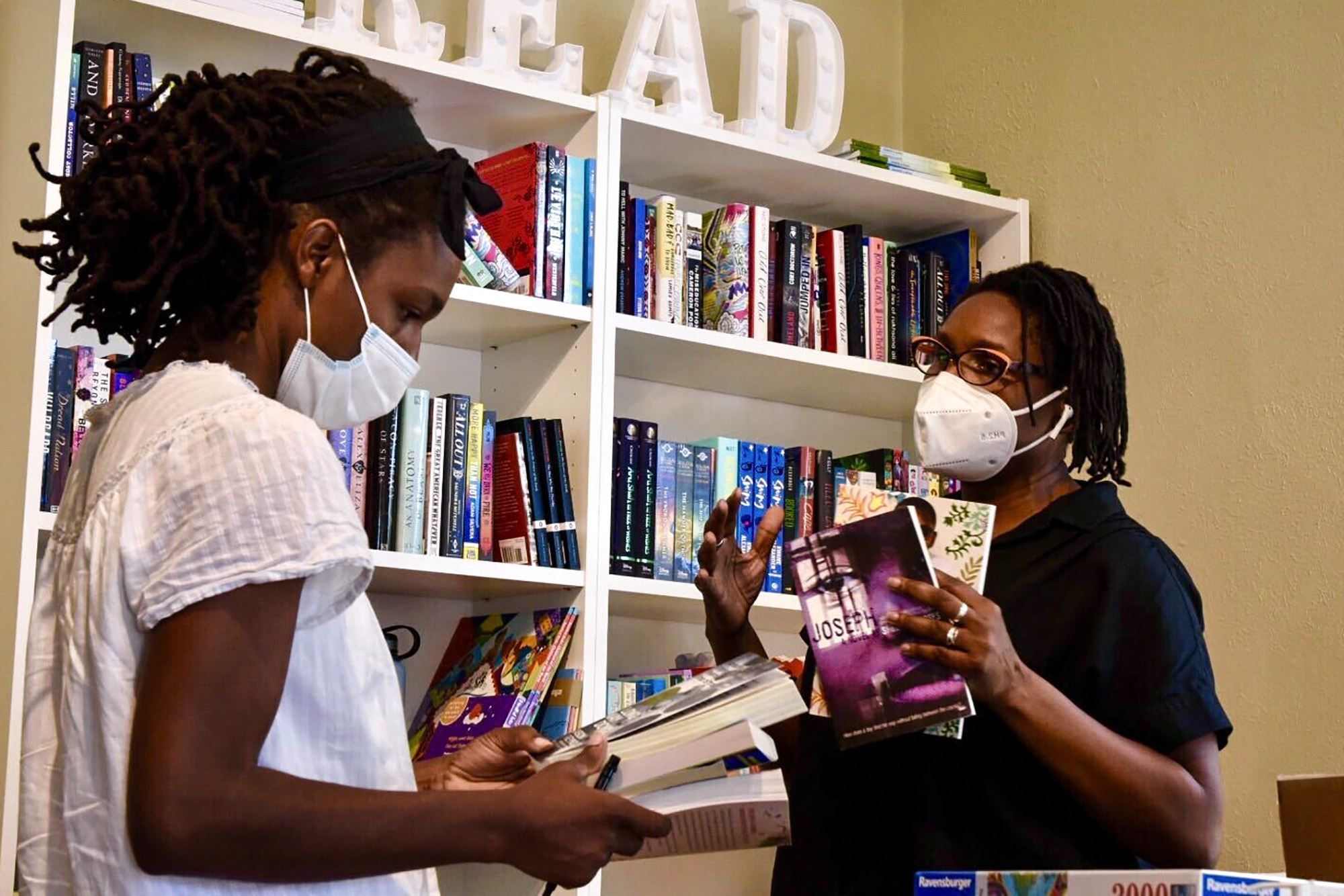All right, it's the start of a new month. You know, we missed you in June. It was the rescheduled primary election day. So we have a little while here that we've been able to catch up as July already. So, thanks for being here on estimate. Appreciate it.
Oh, you're welcome. Beautiful day. Glad to be glad to be with you.
So just looking at numbers, we've usually been starting to show talking about the Coronavirus. I see Bartholomew county has 578 cases 44 deaths 6300 tested. Of course these numbers change every day as as things get updated. But you know, as we touched upon, you know, the last time besides Jackson County, those two counties and Bartholomew kind of the highest in southern Indiana more than doubled in Monroe, Does that concern you?
No, not really. You know, it's it's really hard to hard to make sense. And for me out of those numbers, though, I jokingly tell some of the people around Here was that when I was at IU, I took two classes in statistics. And I did reasonably well. But that was 45 years ago. And so I have lost a little bit since then. But But the point is, is that I don't know that we have a representative sample or a statistically valid sample in terms of the people we've selected to take these tests. I mean, the selection criteria usually involves people who are symptomatic or been exposed to folks who are and so you know, you're going to get you should get a little higher incidence of positive side of that, and I really don't know how that would compare to other counties is I think I mentioned in some other maybe last month or another interview, I tend to run together for me, but what the statistic that we follow most closely is the inpatient census at Columbus Regional. What we're trying to measure there is the extent to which cities People exist and they use the healthcare system. And by their use, you know, make it unavailable for others. And what we've seen is that most recently than the number of inpatients that CRH is two, I mean, that was the last number I got. It's been as low as zero as high as 20. And what that indicates to us is that while the disease the virus is present in our community, we've not had an extreme incidence of significant infection and infection greater than what we can treat. And so, so we feel pretty good about those numbers. And then as we sit here, we're contemplating, you know, going to stage five in the governor's reopening plan this weekend, and we'll have a group that meets tomorrow that will try to evaluate whether you know, Bartholomew county is prepared to march forward with the state of Indiana and at this point, it would certainly seem that we we are, you know, we're mindful of what going on down south and out west and are concerned that, you know, those kind of numbers could migrate our way there was an article in this morning's paper about Evansville. And a little bit of a surge that occurred just here overnight or over the weekend. And, and so you know, that's that's concerning. But right now, we've we've been able to post some, some decent results here, Bartholomew County, and we feel good about that.
So is that the measuring stick for the officials for that meeting? Tomorrow is the hospitalization count right now that's so low that you feel like you're on a good track to move to stage five?
Yeah, there are several metrics we look at and some of those are ones that you've mentioned, but the primary one is inpatient census at Columbus Regional.
I see like Bloomington and Indy some Columbus restaurants are doing outside dining is the street is the city closing streets for that?
you know, we have the ability On Fourth Street to close sections of the street, one of the improvements that was made in the downtown area several years ago, it was what we called up our entertainment district. And there are some gates down there that allow us to close a block of Fourth Street at a time between Washington Street and Jackson in between Washington Street and in Franklin. And that, in turn, allows some of the restaurants to place tables and umbrellas and chairs, you know, out there so that they can serve more patrons, without having to, you know, run afoul of the physical distancing rules. And, and so far, the reaction has been pretty positive, both from the restaurant tours who appreciate the extra volume but among people in the community who appreciate the opportunity to get out and, and just enjoy, you know, a burger and a beer. So it's a it's been a good thing and we've, like I say it's been pretty well received but Both sides of it, that that situation.
if the governor decides not to move forward to stage five, or pushes it back another week as well, is Columbus going to follow pretty much what the governor does? Are you going to go on your own?
No, I don't I Well, well, we'll see what we get there. But we've said before that we won't move any faster than state of Indiana, we may move a little slower, you know, if local conditions weren't, but I don't see us moving any faster.
You know, we've been reporting a lot on school reopening plans. Are you concerned or been part of any discussion for the schools in Columbus in terms of reopening for this fall? Because that's coming up soon, isn't it?
It will be here before you know it. But there is a time there is a point where it seems like some of these days drag on you know, I mean, it just I don't want to get it get on to the next chapter. But yeah, we're concerned but to this point, the school Corporation here has been very realistic, you know, with respect to what they would, what they're trying to do what they what they know they need to do. very cautious and so they've put the kids health front center and along with the teachers and the other administrators so I'm pretty confident they'll come up with a, you know a process that will will take all that new account take everybody's safety into account.
How about some of these projects that we you know, have talked about of course, over the the years of doing this show? One for sure is that I know it's ongoing is the overpass the railway overpass State Road 46. First, we have a newsroom. We have embed. We've been doing a lot of these zoom interviews. So I haven't been able to get to Columbus for a few months. I don't see it. How's it going?
It's going great. You need to come over here just for fun. I mean, just drive on this thing. What we we were able to open last week at the end of last week, the eastbound lanes. So the inbound today town is open and they did that so that they could begin to work on the tie in for the westbound lanes. So you know they've got to be able to cross the way the eastbound lanes so it's got to be able to cross those to get to the westbound lanes. So we're driving on it. I mean, if you come into town, you're able to fly right over the railroad tracks and State Route 11 which is which is really kind of neat. The the quality of work that you have to do that the pavement that's there is not the final pavement, there's another asphalt overlay that will occur. The markings that you see there are temporary, those will come up and be replaced by permanent street paint whatever they call it. And I think we're you know, we've talked previously about being able to drive on this by Christmas. I think we're going to beat that. You know, pretty handily all we we needed some some more fair weather. The weather so far has been outstanding. for construction and, you know, one of the bright spots of the COVID issue is that the decreased traffic has actually helped these guys, you know, in terms of being able to move dirt around. So So yeah, they're, I think they're ahead of schedule. I mean, they're pretty non committal when you ask about that as I would be if I was in their shoes, but But yeah, it's, it's coming along neat. It's fun to watch. Something you worked on for several years, you know, actually come to fruition.
What about the status of the conference center? Is that on hold right now? Is that still moving forward?
Yeah, it is. The conference center is tied with the hotel. And right now financing for that kind of projects is difficult to come by the developing team developer team that we have partnered with on this as spragg developers, and they're, you know, they assure us that they're interested in going forward that you know, we will be there next project but the financiers, the bankers are just cautious as again as I would be if I was in their shoes. So we anticipate that the hotel Conference Center and the tend to parking garage may be delayed by about a year just to allow for, you know, the economy to recover and for the lenders to be able to adequately assess the value of the project. You know, there's another piece to that project is just south of Second Street on the other side of Second Street and one block east. And that is a mixed use development. That would include an urban grocer and some apartments and that one continues on schedule. You know, the finit financing for that is not really affected by the Coronavirus. And so, so we expect that when the move forward, you know, we had been sort of moving these try and move them together at the same time or moving forward at the same time and we've set that aside for you to go forward with What we call the mixed use development and with the hotel conference there catch up when you can.
You know, the another interesting project I wanted to ask you about was the Faroe, small repurposing. Now, jack, because that's something that, you know, the city bought moving forward thinking about an indoor sports tight recreation facility. And now with the pandemic, that doesn't sound like such a great idea.
you know, times change, and we'll we'll, you know, we'll motor through this, as well, but, you know, part two or three things going on that effect this one is that the people who are working on the Fair Oaks project are now helping guide our response to the Coronavirus and you really can't do two things at once or you can't do them well, both of them. So, you know, we don't really have the staff available to us that we had previously. Number two, we began to be a little cautious about our tax receipts and the extent to which you know, We'll be able to post receipts that are consistent with what we consistent with what we had when we contemplated the purchase. And it's going to take a little while before we get confident, again, that we'll have the revenue that we need because we hadn't anticipated paying for a good portion of this out of our economic development income tax. And we just don't really know yet how that's going to be affected. At the same time, you know, our partner, Columbus Regional, has also had its attention diverted, you know, by the same, you know, Coronavirus issue, and, you know, their revenues have taken a hit as well. You know, great many people have deferred, elective surgeries and other kinds of health care activities. So, we're both just going to take a little pause here and, and once the Coronavirus, digital dust settles, we'll get back together and see where we are.
Well, there'll be a time to look at the use of this will be will that change a little bit? Or is it too hard?
Excuse me a little hard to say right now. I mean, part of what had driven our decision was the status of Donner center. Donner center is an old building 7075 years old, and it's in it's as well maintained as you can maintain something that age. But it needs to, it needs to be replaced and that that issue is not going to go away. And part of the reason that we got involved with Fair Oaks was to be able to provide an alternative to Donner center, not with not only with respect to the meeting facilities that are there which are pretty heavily used in the community but the administrative offices for the parks department so they said those those leads are not going to go away and and we'll need to move on them at some point. But like I said, we're gonna we're gonna wait until the Coronavirus, dust settles and then we'll we'll figure out what what comes next and in what order.
You know, we haven't been able to Talk about all the rallies and protests over social justice and fighting racism. And for those outside of Columbus who listened to this show, for the first time we we've talked about this, can you catch us up on the atmosphere and the sentiments there in Columbus over what's been happening to across the nation?
Well, I think we're all a little more than a little chagrined at what we see on television or what we see on some of the recorded videos, whether it's on social media or TV or whatever the sources and we want to make coffee, we want to be confident that, you know, we're as confident as we can, that similar kind of incident won't happen here. And so we've had a variety of conversations with people in the community as to what we, what we what we plan to do, in terms of just reviewing what goes on in our police department and, you know, making sure that they receive all the training that is appropriate to understand how to de escalate and Know when to use force and when not to and what kind of forced to use when you do and, and so far, I think we've been kind of heartened to realize that a lot of these points or stipulations have already been in place. You know, we've seen lists of eight, and we've seen a list of 21. And, and those, that portion of them have already been addressed in by by our police department. So I think that it's as much education campaign to the public is, as anything that Yeah, we're already doing a good portion of this. I will tell you that, that Yeah. There's a little bit more interest now than there had been before or before or before. I mean, we've had conversations, you know, several times, but at this point, we've, we've got a good portion of the public public public, excuse me, here that is very, very much interested in this and that, I think that we'll be able to Come forward with with some meaningful, you know, some meaningful guidance and meaningful change that should address some of the concerns that people have. And I hope that he points out to them that, you know, Columbus has always been pretty good place to be. We're not perfect by any stretch, but we don't seem to have the the adversarial relationship that exists in many of the larger cities. And so that that's a good thing. You know, it's a, it's one more reason why in a small town like Columbus is that it is a desirable place to live.
I know we're out of time, but I did want to ask you about a community meeting about the public golf courses coming up in July with well this month. What's that about?
back in January, the management out of otter Creek changed and what had been a board of directors that was appointed primarily by Cummins became a board of directors primarily appointed by the mayor by me. And part of what that does is that it means make some other changes. I mean, there's a ripple effect kind of thing and one is that the city of Columbus now has 54 holes of public golf. You know, we've got nine holes at a place called greenbelt got 18 holes of par three golf and then 27 holes at it otter Creek. And along with the responsibility to manage all those is also the responsibility to provide funding to the extent that is necessary. And what we find ourselves in is a situation where we're spending a lot of money on public golf, we find our administrative activities or you know, a little spread, spread a little thin. We feel like we could do a better job if we combined our you know, activities in one area and consolidated there and tried to get the efficiencies that come from having all your people and all your equipment and all your focus in one One area. And so the question becomes, well, you know, which of the 54 holes are too many? And how do we how do we go about trying to right size this? And so, we have come up with several different proposals for for a group to consider, and we will discuss those on July 8. There'll be a public information session at the commons, it will be I think we're going to be at six o'clock in the evening due to the Coronavirus, we will, you know, provide for some social distancing. So, I think we're going to be limited to about 90 people plus or minus, but we will livestream this so if you can't make it you can follow along at home. The whole idea of being able to try to explain to the community, the situation that we're in and in some of the alternatives and then I'll have a recommendation, you know, to, to present and try to explain the rationale behind that. And then that all in is in anticipation of the Decisions been made by the Columbus City Council and the parks and recreation board. And then the mayor doesn't decide we get to I get to recommend, but but the decision relaxed rests with the, with those with those groups. And we will have meetings later on. I'm sure I'm drawing a blank on the time of the city council meeting, I want to say is July 21. And then there'll be the parks board meeting. And I want to say that's the fifth of August. So, you know, we'll have this public information session on July 8, and there'll be some further discussion at a city council meeting on the 21st. And then further discussion at a city parks board meeting on I believe it's August 5, but we'll just we'll have to confirm those dates and, you know, make sure that they're, you know, adequately posted so everybody who wants to participate can do so.
All right, well, Happy Fourth, and I'm assuming is everything canceled there in Columbus?
Well, I think there's going to be a few private fireworks displays, you know, that will, you know, will do sort of endure but but yeah, the big public displays are, are canceled. And that's it. You know, it is a shame because of July 4 is a big day. It's our nation's birthday and we want to be able to celebrate that. But it just doesn't make sense to do that in mass. At this time. The sponsor for the Fourth of July fireworks cue mix radio station has indicated that they're going to try to reschedule this for some time over the Labor Day weekend. So so we can have some fun, then it'll be a good alternative.
Alright, well stay safe. Thanks for doing this and hope to see you next month. You're welcome. Take care. All right. Thank you.











